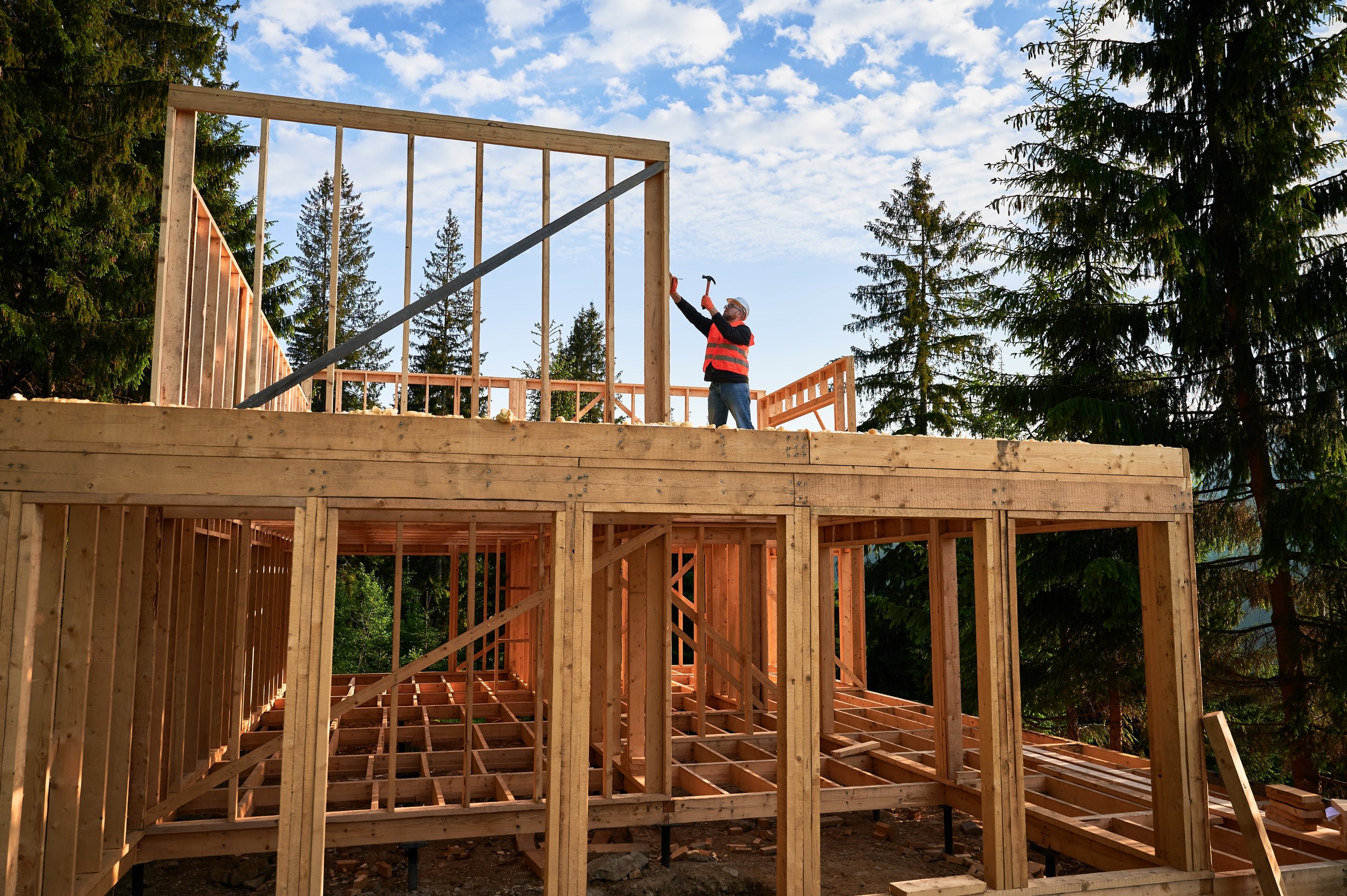From wide sandy beaches reached via rugged cliff paths and charming harbours, to its lush countryside and lively towns, each with its own mouth-watering market, a home in Brittany offers easy-to-reach holidays and generally affordable property.
Out there in the far northwest of France, Brittany has a strong sense of regional identity. You’ll see its black and white striped flag flown proudly.
It’s one of six ‘Celtic nations’ and looks a lot like another one of those – Cornwall – too. Brittany covers more than 27,000 square kilometres – that’s larger than Wales, another of its Celtic brethren.
Being surrounded by sea on three sides also gives it a certain ambience, as well as a milder, windier climate than the south of France. So despite its size, you’re never more than a short drive from the sea.
The region’s four départements – Finistère, Côtes-d’Armor, Ille-et-Vilaine and Morbihan – offer something for every taste and budget, as does its lively and historic capital in Rennes.
Brittany has long been popular with British, Irish and other international buyers. This article explains why Brittany remains a top choice for second homes and relocations.
See what to expect from property prices, where to look and how to navigate the French property buying process in 2026.
Dreaming of coastal walks, historic towns and affordable countryside homes? Explore our full selection of Property for sale in France, including beautiful listings in Brittany. From restored longères and stone cottages to sea-view villas and renovation projects, there’s something here for every buyer and every budget.
Download the France Buying Guide
Contents
Why buy property in Brittany?
Brittany’s appeal lies not just in its distinct culture, slower pace of life and diverse landscapes. There is so much you can do there. Whether you want to get into surfing, sailing, cycling or hiking, or more sit-downy activities such as painting or other crafts, Brittany offers a warm welcome.
When you step out of your door you might be in a fishing village or harbour, complete of course with exciting restaurants serving not something frozen, but fresh off the boat. Or perhaps you’ll be in a town with a castle, surrounded by medieval architecture. Or in the countryside amidst wild heather-covered hills.
While the area has tourist hotspots, most of Brittany’s towns and coasts remain rooted in local life year round.

With over 1,500km of coastline, Brittany is a paradise for outdoor lovers. You can walk the GR34 coastal path, sail in sheltered bays, or surf the Atlantic swells at Quiberon, Crozon or Locquirec. Summer temperatures now regularly exceed 30°C, but the region still offers cooler weather compared to southern France. Most days enjoy a refreshing Atlantic breeze, and nights typically cool down for comfortable sleep. Winters are mild but often wet, perfect for those seeking lush green landscapes.
The region also enjoys excellent transport links. High-speed TGV trains reach Rennes from Paris in under 90 minutes, and Brittany’s road network connects towns efficiently. There are regional airports in Brest, Rennes and Lorient, plus ferry ports with connections to the UK and Ireland. These links, along with greater flexibility around remote working, have made the region even more appealing since the pandemic.
Another major draw is affordability. With property offering better value than many other French regions, especially those further south or closer to major cities, Brittany remains ideal for those seeking a lifestyle change without overstretching financially.
For a detailed look at purchasing overseas, claim your free copy of our France buying guide:
Download the France Buying Guide
Property prices in Brittany
Brittany’s property market in late 2025 continues to attract buyers looking for space, character and value. According to Notaires de France data, the average resale property in Brittany costs around €2,872 per square metre, a small rise from last year. However, regional variation is significant. Inland properties in rural settings may be priced below €1,500 per square metre, while prestigious coastal homes in areas like Dinard or Carnac can reach €6,000 or more per square metre.
Here are property prices for the four departments as of late 2025:
- Finistere: Apartments €2,211 per square metre, houses €2,051
- Cote-d’Amour: Apartments €2,239 per square metre, houses €1,825
- Morbihan: Apartments €3,310 per square metre, houses €2,405
- Ille-et-Vilaine: Apartments €3,385 per square metre, houses €2,122.
Renovation projects remain plentiful inland, with some livable homes under €80,000 – ideal for buyers with a DIY mindset. Meanwhile, restored farmhouses, traditional longères or stone-built coastal homes typically range between €250,000 and €500,000 depending on size, land and location.
If your dream includes a sizeable garden or a sea-view property close to amenities, make sure your budget reflects regional nuances. A local estate agent or property consultant can help target the right area based on your priorities.
Best locations for buying property in Brittany
Brittany offers hundreds of characterful towns and villages to explore. From buzzing cultural hubs to sleepy fishing ports, there’s a wide range of environments to suit different lifestyles.
Rennes: As Brittany’s administrative capital and a major university city, Rennes combines historic flair with modern vibrancy. Its cobbled centre is packed with timber-framed houses, while new eco-neighbourhoods attract younger residents. The city is ideal for those wanting urban comforts with easy train links to Paris.
Saint-Malo: Known for its incredible walled old town and historic seafaring past, Saint-Malo is a magnet for tourists, especially in the summer months. The wider Saint-Malo area contains quieter suburbs offering good value with proximity to beaches and services.
Dinard: Sitting across the estuary from Saint-Malo, this elegant seaside resort boasts Victorian mansions, art galleries and palm-lined promenades. It’s among Brittany’s most expensive locations, especially for period homes with views of the Rance River.

Lorient, Roscoff and Lannion: These mid-sized coastal towns offer beautiful maritime settings without the summer crowds of better-known destinations. Regular markets, decent transport links and active community life make them excellent year-round bases.
Inland gems: Towns like Pont-Aven (famous for its association with Gauguin), Huelgoat (near the Brocéliande forest) or Josselin (with an iconic castle and riverside setting) are great for culture lovers. With generous plots and lower prices, inland properties offer fantastic bang for your buck.
Whether you’re drawn to surfing hotspots, artists’ enclaves or historic market towns, Brittany offers a wealth of variety – and you’re never far from the sea.
Understanding the buying process
The process for buying property in Brittany follows the same legal structure as elsewhere in France, with some practical considerations for international buyers. Here’s how to proceed in 2026:
- Define your search area and goals
Start by prioritising what matters most – coastal, rural, investment or lifestyle? Align your budget accordingly by region. Follow our money-saving tips when buying property in France.
- Set up professional support
Work with a bilingual estate agent and a notaire (independent public lawyer). If you’re not fluent in French, consider hiring an English-speaking legal adviser or property consultant to manage translations and urgent questions.
- Check financial readiness
If you require a mortgage, pre-approval helps strengthen offers. French lenders typically ask for a 20–30% deposit for non-residents. You’ll also need translated income documentation.
- Currency planning
Locking in exchange rates with a forward contract can eliminate uncertainty if your funds are in another currency.
- Make an offer
Verbal offers often precede the formal compromis de vente. Once signed, you’ll have a 10-day cooling-off period before the transaction becomes legally binding.
- Complete the sale
This usually occurs 2–3 months later when the acte de vente is signed at the notaire’s office. Final payment is due at this point.
Remote buyers may arrange to assign power of attorney to the notaire to finalise paperwork on their behalf. It’s also possible to handle much of the process online with the right support council. For a stress-free experience, use approved bilingual specialists familiar with international buyers in Brittany.
Costs of buying property in Brittany
In addition to the purchase price, buyers in Brittany should budget for several other upfront and ongoing costs. In most cases, fees are comparable to elsewhere in France:
- Notaire fees: Around 7–8% for existing homes and 2–3% for new builds. These cover the notaire’s services, legal paperwork and stamp duties.
- Estate agency fees: Often included in the listed price, but this should be confirmed in advance. If excluded, expect fees of up to 5%.
- Mortgage costs: If financing in France, you’ll pay arrangement fees (typically 1%) and may need life insurance. Brokers may charge a 0.5–1% fee too, but their advice often leads to better terms.
- Legal representation: If using an independent solicitor or translator, budget €1,500–€3,000 depending on services provided.
- Annual taxes: Expect taxe foncière and taxe d’habitation (on second homes). Rates vary by local authority – check in advance.
If you’re planning rental income, speak to a tax adviser early. French tax rules for furnished holiday lets differ from long-term rentals and can affect profitability.
As ever, good planning saves money. Working with specialists approved by Your Overseas Home will help you avoid surprise fees and secure the best overall deal for your Brittany home.

Need personalised advice?
If you’re still deciding where to buy property in France, explore our full region-by-region guide to compare Brittany with other popular areas. And for a complete breakdown of legal steps, contracts and taxes, our article on how to buy property in France will walk you through every part of the process.
Whether you’re still exploring the region or ready to organise viewings, Your Overseas Home can help. Our experienced property consultants, vetted estate agents and currency partners make buying safer and simpler. To begin your journey, book your free consultation with our team today.
FAQs about buying property in Brittany
Not especially. In 2025, average resale prices in Brittany are around €2,700 per square metre. Inland homes may start below €100,000, while coastal properties in premium areas like Dinard can exceed €500,000 or more, depending on size and location.
Owning property in France does not grant automatic residency, so you can stay for a maximum of 90 days in any 180-day period without a visa. For stays longer than 90 days, non-EU citizens (including UK citizens) must apply for a long-stay visa.
All over! However, probably the most popular department is Morbihan, which is far enough from the Channel ports to avoid most British tourists.
The process is similar to the rest of France: make an offer, sign a preliminary contract (compromis de vente), undergo a 10-day cooling-off period, and complete the sale at the notaire’s office 2–3 months later. You can complete remotely with the right legal support.









